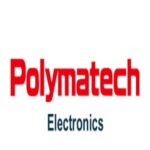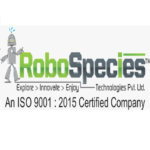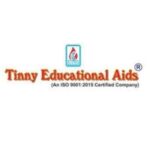EPR certification | Importance | Documents | How to apply | Validity
What is EPR certification & why is it important ?
The CPCB (Central Pollution Control Board) of the Ministry of Environment, Forest and Climate Change of India issues EPR approval for plastic waste, battery waste or e-waste generated from products manufactured or imported in India.
As part of EPR (Extended Producer Responsibility), all manufacturers of electronics, electrical equipment, plastic packaging and batteries must ensure that the waste they produce is treated in an environmentally responsible manner. Recycling or disassembly is mandatory.
There are three categories of EPR:
1. E-waste Management
Pursuant to the powers conferred by Sections 6, 8 and 25 of the Environment (Protection) Act, 1986, the Central Government has enacted the E-Waste (Management) Rules, 2022 in place of the E-Waste (Management) Rules 2016. Indian citizens can now access these new rules after they were published in the Official Gazette of India by the Ministry of Environment, Forest and Climate Change, Government of India on May 19, 2022.
It will come into effect from April 1, 2023.Manufacturers, producers, processors, dismantlers, and recyclers who manufacture, sell, transfer, purchase, refurbish, disassemble, recycle, or otherwise modify electrical or electronic equipment listed on Schedule I are subject to regulatory compliance. Eligible. This includes parts, consumables, spare parts, and components necessary for the proper operation of the equipment.
2. Plastic Waste Management
In exercise of the powers conferred by Sections 3, 6 and 25 of the Environment (Protection) Act, 1986 and to replace the Plastic Waste Management (Amendment) Rules, 2016, the Central Government has enacted the Plastics Management Rules. enacted a new law known as . 2022. This regulation went into effect on July 1, 2022. Your suggestion applies to plastic packaging. The Plastic Waste Management Regulations 2022 provides extended producer responsibility (EIBO) for producers, importers and brand owners.
All plastic waste is generated by plastic packaging manufacturers (P), plastic packaging importers (I), and brand owners (BO). These include micro and small businesses, supermarkets, retail chain stores and online marketplaces.
3. Battery Waste Management
The Battery Waste Management Regulations 2022 (BWM Regulations) were published by the Ministry of Environment, Forests and Climate Change on 22 August 2022, replacing the Battery Management and Handling Regulations 2001. The 2022 BWM Guidelines apply regardless of these. Battery chemistry, shape, volume, weight, material composition, or intended use. The following manufacturers are bound by this limit:
- The company manufactures and sells batteries under its own brand, including batteries that are refurbished and used in machinery.
- Sale of batteries, including used and remanufactured batteries, manufactured by other manufacturers or suppliers and sold under our name
- Import batteries and battery-powered devices.
Advantages of EPR Registration:
- Increased brand awareness – REP certified companies can demonstrate a commitment to environmentally friendly practices and ethical waste management. It also improves stakeholder and customer opinion of your brand, increasing customer loyalty and trust.
- Regulatory Compliance – To demonstrate that they are responsible for the waste generated by their products, several countries require companies to become certified and comply with EPR regulations. Obtaining an EPR certificate allows businesses to prove that they meet certain legal requirements.
- Reduce costs – Using environmentally friendly waste management techniques can reduce your company’s disposal costs while increasing productivity. By obtaining an EPR permit, companies can demonstrate their commitment to reducing waste and ultimately saving money.
- Opening up new markets – Companies with a REP certificate are entitled to operate in regions where responsible environmental management and sustainable waste management practices are highly valued. This helps businesses expand their customer base and revenue streams.
- Improved supply chain management: Companies can reduce the risk of supply chain disruption due to waste issues by adopting sustainable waste management strategies. This improves supply chain reliability and efficiency.
Step by step procedure to get EPR certification:
- Develop an EPR strategy – Manufacturers should develop an EPR plan that outlines how their products will be collected and recycled at the end of their useful life. The EPR plan should include information about the types and quantities of waste to be collected and recycled, the procedures to be used, and deadlines for achieving these objectives.
- Complete the application – Complete the REP registration application on the website of the Central Pollution Control Board where the manufacturer’s manufacturing plant is located.
- Attach all required documents: Manufacturers must attach the EPR approval application and other required documents.
- Submission of application – Depending on the location of the manufacturing plant, the manufacturer will have to submit an application for EPR permit to the Central Pollution Control Board along with all required supporting documents.
- Pending Approval – The CPCB may request additional data after reviewing your EPR approval application. Manufacturers receive an EPR approval certificate once their file is approved. It is important to note that EPR certificates need to be renewed regularly as per the rules set by CPCB.
List of the documents required to apply EPR certification:
- GST and MSME registration.
- CIN certificate.
- IEC Certificate.
- Partnership deed in case if partnership firm.
- Aadhar card and PAN card of the authorized person.
Our Partners
We believe in building a strong customer network and contributing to the ecosystem for mutual benefit. Some of our valued clients include:
















Pursuant to the powers conferred by Sections 6, 8 and 25 of the Environment (Protection) Act, 1986, the Central Government has enacted the E-Waste (Management) Rules, 2022 in place of the E-Waste (Management) Rules 2016. Indian citizens can now access these new rules after they were published in the Official Gazette of India by the Ministry of Environment, Forest and Climate Change, Government of India on May 19, 2022.
It will come into effect from April 1, 2023.Manufacturers, producers, processors, dismantlers, and recyclers who manufacture, sell, transfer, purchase, refurbish, disassemble, recycle, or otherwise modify electrical or electronic equipment listed on Schedule I are subject to regulatory compliance. Eligible. This includes parts, consumables, spare parts, and components necessary for the proper operation of the equipment.
